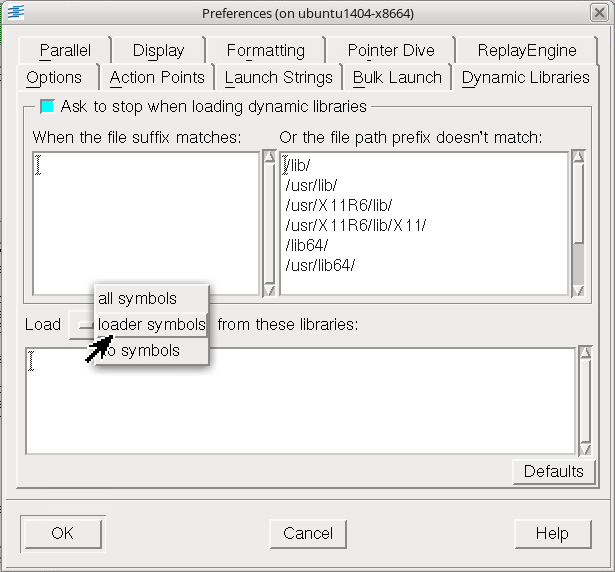Specifying Which Libraries are Read
 |
The lower portion of this page lets you enter the names of libraries for which you need to manage the information that TotalView reads.
When you enter a library name, you can use the * (asterisk) and ? (question mark) wildcard characters. These characters have their standard meaning. Placing entries into these areas does the following:
all symbols
This is the default operation. You only need to enter a library name here if it would be excluded by a wildcard in the loader symbols and no symbols areas.
loader symbols
TotalView reads loader symbols from these libraries. If your program uses a number of large shared libraries that you will not be debugging, you might set this to asterisk (*). You then enter the names of DLLs that you need to debug in the all symbols area.
no symbols
Normally, you wouldn’t put anything on this list since TotalView might not be able to create a backtrace through a library if it doesn’t have these symbols. However, you can increase performance if you place the names of your largest libraries here.
When reading a library, TotalView looks at these lists in the following order:
1. all symbols
2. loader symbols
3. no symbols
If a library is found in more than one area, TotalView does the first thing it is told to do and ignores any other requests. For example, after TotalView reads a library’s symbols, it cannot honor a request to not load in symbols, so it ignores a request to not read them.
See the online Help for additional information.
If your program stops in a library that has not already had its symbols read, TotalView reads the library’s symbols. For example, if your program SEGVs in a library, TotalView reads the symbols from that library before it reports the error. In all cases, however, TotalView always reads the loader symbols for shared system libraries.





